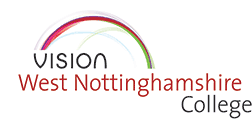This thought-provoking course offers the opportunity to learn about the latest economic theories and practices in the context of different economic issues both nationally and internationally.

This thought-provoking course offers the opportunity to learn about the latest economic theories and practices in the context of different economic issues both nationally and internationally.
This two-year A Level course is broadly divided into two sections:
Micro-economics: This looks at the small picture and focuses on individual people, businesses and markets, examining how and why they make particular economic decisions.
Macro-economics: This looks at the big-picture and is about national economies as a whole. We look at things like unemployment, inflation and the actions a government can take to deal with specific economic problems they might face.
You will develop the knowledge and skills needed to understand and analyse data, think critically about issues and make informed decisions. You will also need to analyse a wide range of real-life economic situations across the globe to support your studies.
With many decisions made in the world today influenced to some degree by economics, this exciting course can lead to many careers within finance, government, politics, journalism and more.
Entry requirements
GCSE Maths grade 6-9
Plus, four GCSEs grade 4-9 including GCSE English Language.
Study programmes - essential skills for employment
If you're a student between the ages of 16 and 18 (or 19 to 25 with an EHC Plan) we want to make sure you have the best possible chances of landing an awesome job once you finish college.
Students who haven't achieved a grade 4/C in GCSE maths or English to continue studying these subjects while you're here with us. By doing so, you'll be building a strong foundation of skills that will significantly boost your employability in the future.
Think of it as a chance to supercharge your knowledge and abilities. You'll be equipped with the tools necessary to tackle the world beyond college with confidence. Plus, we'll be right here to support you every step of the way.
In addition, to help you gain essential skills for employment, all students aged 19 and under and studying a full-time course with us will take part in our study programmes.
How long is the course?
Two years.
What does the course lead to?
A level Economics will open up a wide variety of career paths and economists can be found in many sectors. They are often found working in banking and the financial sector as well as in government, politics and journalism.
Popular careers include being a professional economist, law, accountancy, marketing, journalism, finance, investment, business management, politics, aid and charity work, and government. Economics is a qualification well-respected by employers.
Each year the college provides education and training to some 14,000 full and part-time students (including 4,000 apprentices) across all major industry sectors from entry level to level 5.
The college’s £50 million redevelopment has now reached completion, which means new buildings, new facilities and new opportunities. Students learn in state-of-the-art facilities, with industry-standard equipment, allowing them to hone their skills for employment.
At college, we embrace and encourage all those who are driven to better themselves, achieve their goals and reach new heights. Outstanding resources combined with exceptional teachers and student support means that whatever your ambition, we can help you to achieve it.

Economics is the study of economic systems relating to the behaviour of individuals, organisations and governments in both national and international contexts, in the pursuit of wealth and financial well-being.

Much time will be spent applying economic concepts. There is regular homework to check understanding. The course will also develop numeracy and communication skills.

Assessment for the first year of the two-year course is split into two papers, the operation of markets and market failure and the national economy in a global context. The second year comprises of three papers which cover markets and market failure, national and international economy and economic ...

Assessment for the first year of the two-year course is split into two papers, the operation of markets and market failure and the national economy in a global context. The second year comprises of three papers which cover markets and market failure, national and international economy and economic ...

Assessment for the first year of the two-year course is split into two papers, the operation of markets and market failure and the national economy in a global context. The second year comprises of three papers which cover markets and market failure, national and international economy and economic ...
© 2025 coursetakers.com All Rights Reserved. Terms and Conditions of use | Privacy Policy